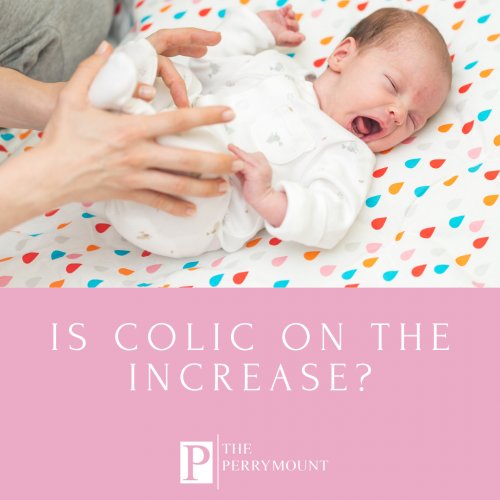Many people might say that if colic is simply wind then why would it be becoming more common in babies? In the orthodox medical profession colic is thought to be a mystery with the causes unknown and having no cure. However, my experience and research has lead me to see that there are definitely causes and once you know the causes you can help them, help babies stop crying and help parents relax and everyone gets more sleep.
Let me show you a few of the causes of colic and explain why the occurrence of colic could get worse in the future:
C-Section rates
In my clinic I see a distinct difference between C-section babies and vaginally born babies. The C-section babies can display both irritability and increased likely hood of colic. Planned C-section babies are interestingly the most ratty and cranky babies I see.
Scientific research absolutely confirms this showing that C-section deliveries cause a change to the friendly gut bacteria in the baby. The reason being that they should pick this bacteria up from their mother as they pass through the birth canal and so miss out when born by C-section. Science has also very clearly demonstrated that colicky babies have a different make up of gut bacteria, Therefore C-section babies are more likely to have colic.
Currently rates of C-section’s are at the highest ever level, around 25% of all births. The trend seems to be that these are getting higher, although I from speaking at midwifery conferences that midwives are desperate to decrease them. The bottom line is that if C-section rates continue to rise so will colicky, upset babies.
Antibiotics
Not so long ago the Daily Mail had an article called "Antibiotics Armageddon". The gist was basically that antibiotics are so commonly and routinely used that bugs become resistant to them.
It is easy to see in my clinic that there has been a rise in the number of mothers and babies that have been exposed to antibiotics in the first few weeks of the babies life. In fact, probably 90% of the upset babies that visit me have had antibiotic exposure already, either directly given to them or to their mother who is breast feeding which on through her milk.
As mentioned above a lack of friendly gut bacteria causes colic and this is exactly what antibiotics do too. They kill of the bad bacteria in times of infection which is great, but they also kill off the good bacteria in the babies gut too. So antibiotic use, which is increasing, can cause colic. Studies have even shown that a baby’s gut bacteria is detrimentally altered for up to one year after antibiotics. This really illustrates to me why it is so important to replace the good gut bacteria in the baby using a specialist baby probiotic.
The main symptoms babies have after antibiotics is colic, wind, constantly griping and they can poo many times a day, maybe towards ten times. Every nappy seems to be dirty and their poo is watery. This is a definite sign to use probiotics to balance them back out with good bacteria.
Formulas / breast feeding
Formula fed babies tend to have more colic and wind too. Whether a mother breast feeds or formula feeds is her choice and down to necessity often so my view is to help the mother and baby as best I can whatever their feeding choices are. Although breast feeding rates are increasing the statistics still show that 83% of babies are being fed formula at 3 months of age and only 1% at 6 months.
Babies can have problems with formula if they are sensitive to the milk sugars or milk proteins. Also formulas do not carry the friendly gut bacteria that breast milk does, which is passed on from the mother. My advice to mothers is to experiment a little with different formulas to find one that your baby isn’t as reactive to, maybe a lower lactose one. Also you can add a specialist baby probiotic to the formula, which I have already mentioned. In my opinion this is one of the most beneficial things you can do to make a formula feed that much better.
There are other factors that I think show that colic and upset babies will be on the increase, but this is only if you don’t understand the causes. If you do know the causes then each can be successfully addressed and even some prevention can be put in place whilst you are pregnant so baby and parents can be happy and sleep well.



